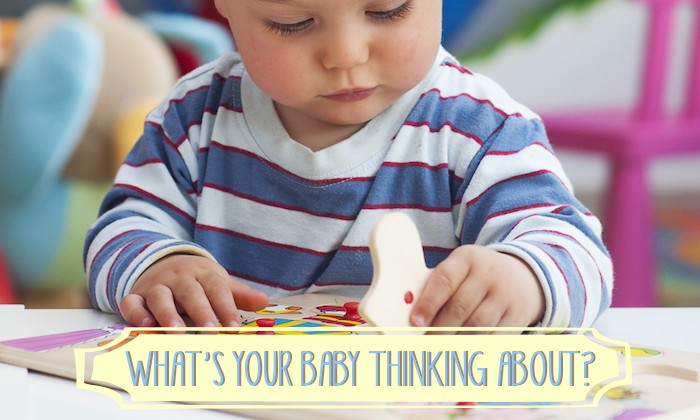
New parents are understandably filled with questions about the mysterious creatures that are babies. Please welcome Dr Penny Tok, a child psychologist in Singapore specialising in cognitive development, with some great tips for how to best help babies learn and engage with the world around them. She’s even got an at-home experiment for you try!
The older view of babies being passive, docile creatures has now been widely refuted by scientists, and most parents know that even while lying in their cot, little ones are beginning to make sense of the world around them. While babies do not always seem to be doing very much apart from crying, eating, sleeping and various other bodily functions, their brains are in fact constantly abuzz, acquiring new information. Cognitive development – the mental development of infants and young children – is often a source of interest and mystery for parents. So this raises the question: How do babies learn, and how can we facilitate their learning (do we even need to)?
Conditioning: Classical and Operant
Studies have shown that infants from as young as 2 ½ months old learn through the processes of operant and classical conditioning. Simply put, behaviours followed by a preferred outcome will increase that behaviour, while behaviours followed by a non-preferred outcome will decrease the likelihood of repeating that behaviour. For example, if the baby kicks and her kicks move a hanging mobile, she is likely to kick again if she enjoyed seeing the mobile move (Rovee-Collier, 1987).
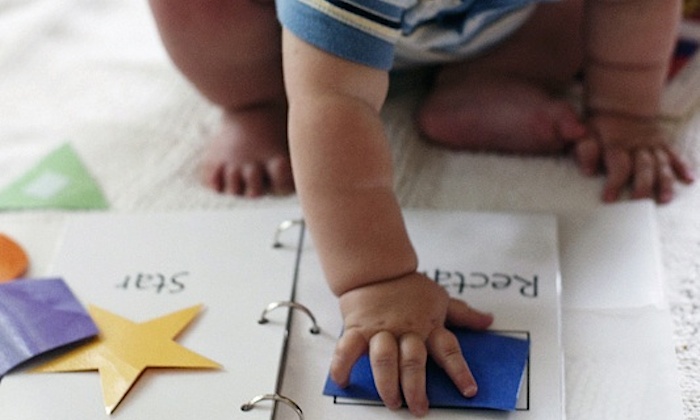
Attention
Attention is defined as the focusing of mental resources and it’s crucial in helping us sift through and focus on certain aspects of the myriad information in our environment. If we didn’t pay attention to something or some event, we would never be able to retain the information taught!
An infant’s attention is strongly governed by novelty, so when an object presented to her becomes familiar, she will soon be vulnerable to distraction. As children grow older and enter the preschool years, they slowly develop the ability to control their attention. However even by this stage children are still distracted and less able to focus their attention to relevant stimuli if other stimuli stand out and distract them (for example a flashing clown distracting them from sorting shapes).
Experience
One of the best ways to let a young infant learn is to offer them lots of experiences. Young infants can also track movement and understand some basic cause and effect events in their environment. These new experiences will teach the young infant about different textures, different sounds and about how the world works. Opportunities to touch things, go for walks in the park or even just look outside the window and listen to music will provide them with plenty of stimulation.
Remember, though, that a young brain gets overwhelmed easily so there is no need to keep them stimulated all the time.
Want to try your own experiment at home? Object permanence is the understanding that objects and events continue to exist even when they cannot be seen. Newer studies reveal that some babies as young as about 5 months old already have this ability. If you have a young baby and would like to do a simple experiment at home, try letting your chid play with a favourite toy for a while. Then place the toy on your palm in front of him and let him observe as you cover it with a piece of cloth. Watch for his reaction after the toy is covered. If he hasn’t developed object permanence, the likely result is that he will cry as he’s upset his favourite toy is gone. If he has developed object permanence, he will likely try to reach out to remove the toy from under the cloth.
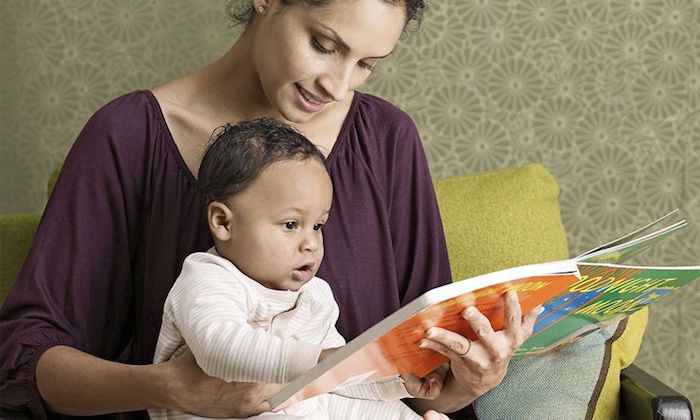
What you can do to facilitate learning
Play
Easy enough, right? Contrary to clever marketing, young children do not require fancy music CDs, flashcards or specialised toys to help them learn. They should be allowed to learn through doing what a child does best: play. By letting children direct their own learning through play, they can build their skills in cause and effect, imagination and even engineering! Through simple play with building blocks, children also learn how to problem solve and be independent learners, which is far more effective than directed learning. Most babies will develop their skills and reach their milestones without parents needing to do much more than play with them. So if you have been thinking of buying Baby Einstein products to give them a head start, save your money. Some good old cuddly toy, links, squeaky toys and dress-ups will do just as well.
Read and Talk to them… a lot
Reading and talking to young babies teaches them about a multitude of important skills ranging from language sounds, vocabulary, emotions, visual imagery and even social skills like turn taking and taking perspectives. A 2014 study found that reading and talking to 9-month olds showed positive gains in their development of problem solving and communication skills compared to just showing them pictures (Murray & Egan).
Good books for babies include the Eric Carle range of books and, for a local flavour, you could try the Ellie Belly series by Eliza Teoh. Also, do not feel that you have to use “baby language” when speaking to babies and young children. Children are smart creatures! We do not need to “dumb things down” for them.
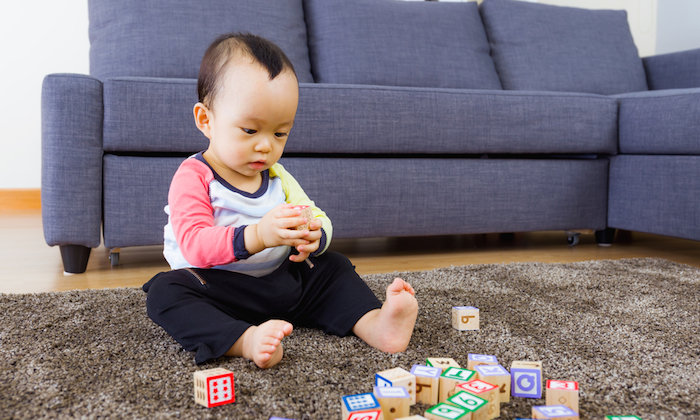
Keep gadgets away from young children (or minimise time spent on devices)
It’s discouraging to see so many children engaged with handheld devices from a very tender age. While it’s sometimes necessary to use the TV as a temporary nanny when busy mums and dads just need some time to make dinner (or even use the toilet!), know the side effects of too much TV watching: a paper by Lin, Cherng, Chen and Yang (2015) reported cognitive, motor and language delays in children who watched an average of 67.4 minutes of TV daily (specific I know, but that was their data). So do consider reducing or ideally eliminating the time young children spend on smart phones, tablets and iPads.
If you would like to find out more on this topic, please check out:
Suggested readings and videos
- “The Linguistic Genius of Babies” by Patricia Kuhl
- “What do Babies Think?“ by Alison Gopnik
- The Scientist in the Crib: What Early Learning Tells us about the Mind by Gopnik, Meltzoff and Kuhl (2009)
Finally, remember that every baby develops slightly differently and your child may not strictly follow the timeline above. However if you are concerned, speak to your paediatrician or see a child psychologist.
Want to learn more, mama? Dr Tok will be giving a talk entitled “Early Childhood Development: What’s normal and what’s not?” next week at East Coast!
All the details
When: 6 June 2015, 10-11.30am
Where: 11 Jalan Saudara Ku Singapore 457448
How much: $5 per person (includes light refreshments)
RSVP: Email [email protected]






 View All
View All
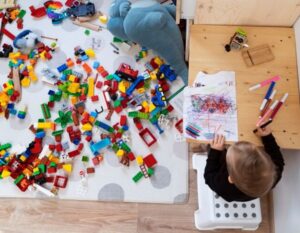



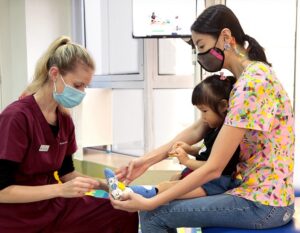
 View All
View All

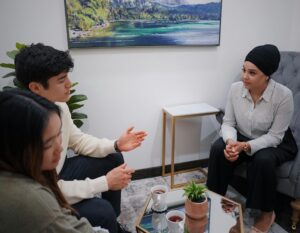




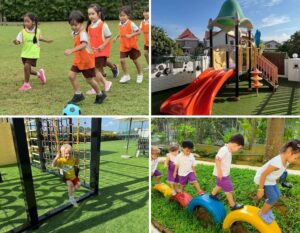



 View All
View All






